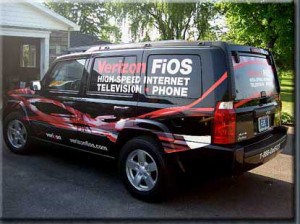
Customers don’t care who wins, because they don’t need faster broadband, claims Bright House Networks.
Bright House Networks thinks customers do not need or want faster broadband speeds and have no plans to match newly-announced speed increases offered by its competitor Verizon FiOS.
The cable operator, which serves central Florida, is downplaying the importance of Verizon’s upgraded service which will bring 300Mbps broadband to cities like Orlando and Tampa.
“Research indicates that the vast majority of customers do not have interest in these types of speeds for their homes, not to mention the potential expense,” Bright House spokesman Joe Durkin told the Tampa Bay Times. “Our network can deliver these speeds if we felt there was a residential market for it.”
Bright House speeds currently max out at 40Mbps. The cable operator says customers seeking faster service won’t face the sticker shock Verizon delivers for their fastest speed package, which comes in at $200 a month. Bright House sells its fastest package at “an additional $15 or $30 a month,” Durkin said.
 Durkin believes most consumers can survive just fine with a slower speed package, even with multiple wireless devices sharing the connection.
Durkin believes most consumers can survive just fine with a slower speed package, even with multiple wireless devices sharing the connection.
“Whether you are downloading music or streaming video to your laptop or iPad, you can do it all with Road Runner Lightning,” he said.
Bright House retains the Road Runner brand for its broadband service that Time Warner Cable retired earlier this year. Bright House has partnered with Time Warner to handle programming and certain other contract negotiations.


 Subscribe
Subscribe




